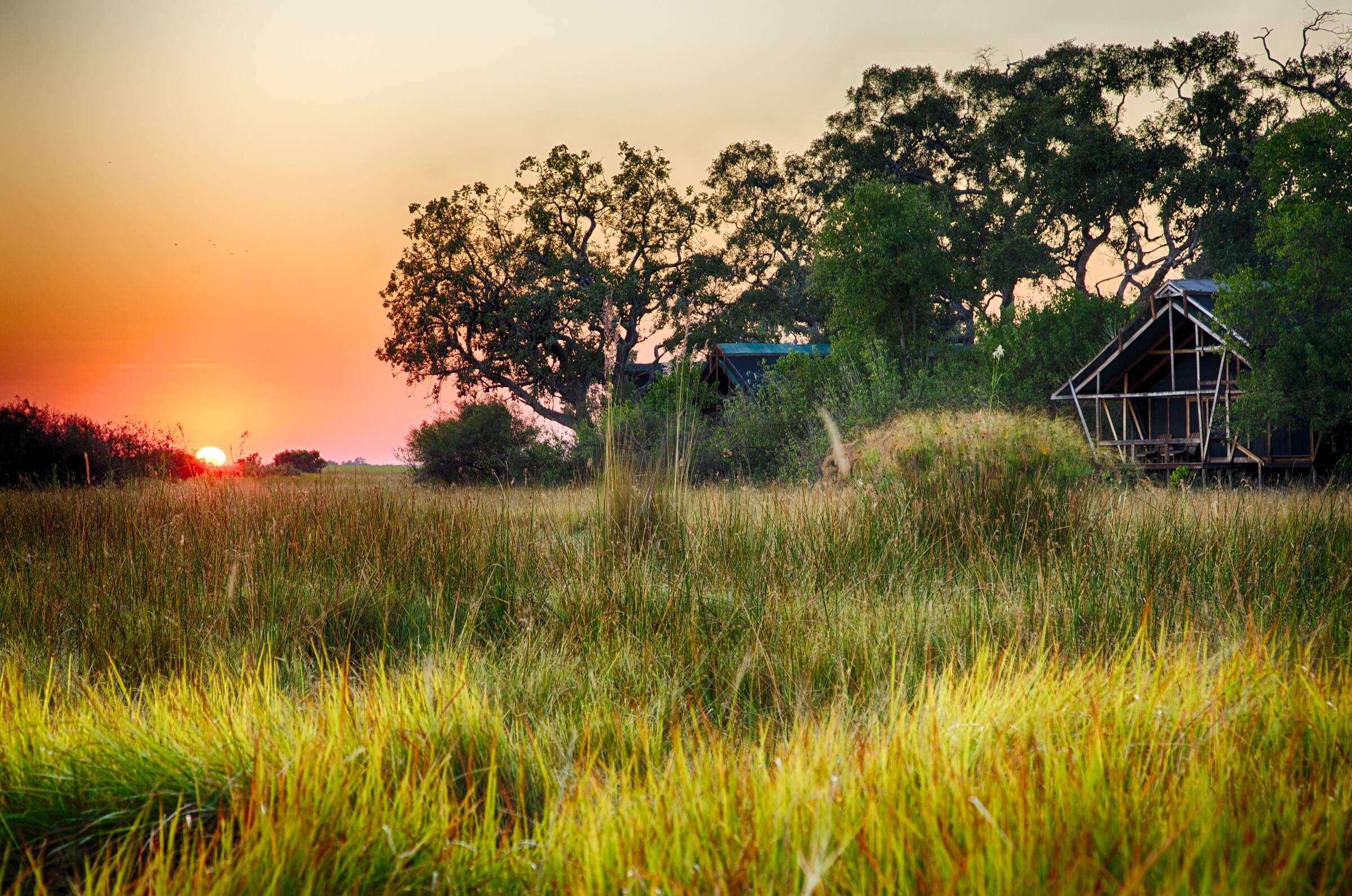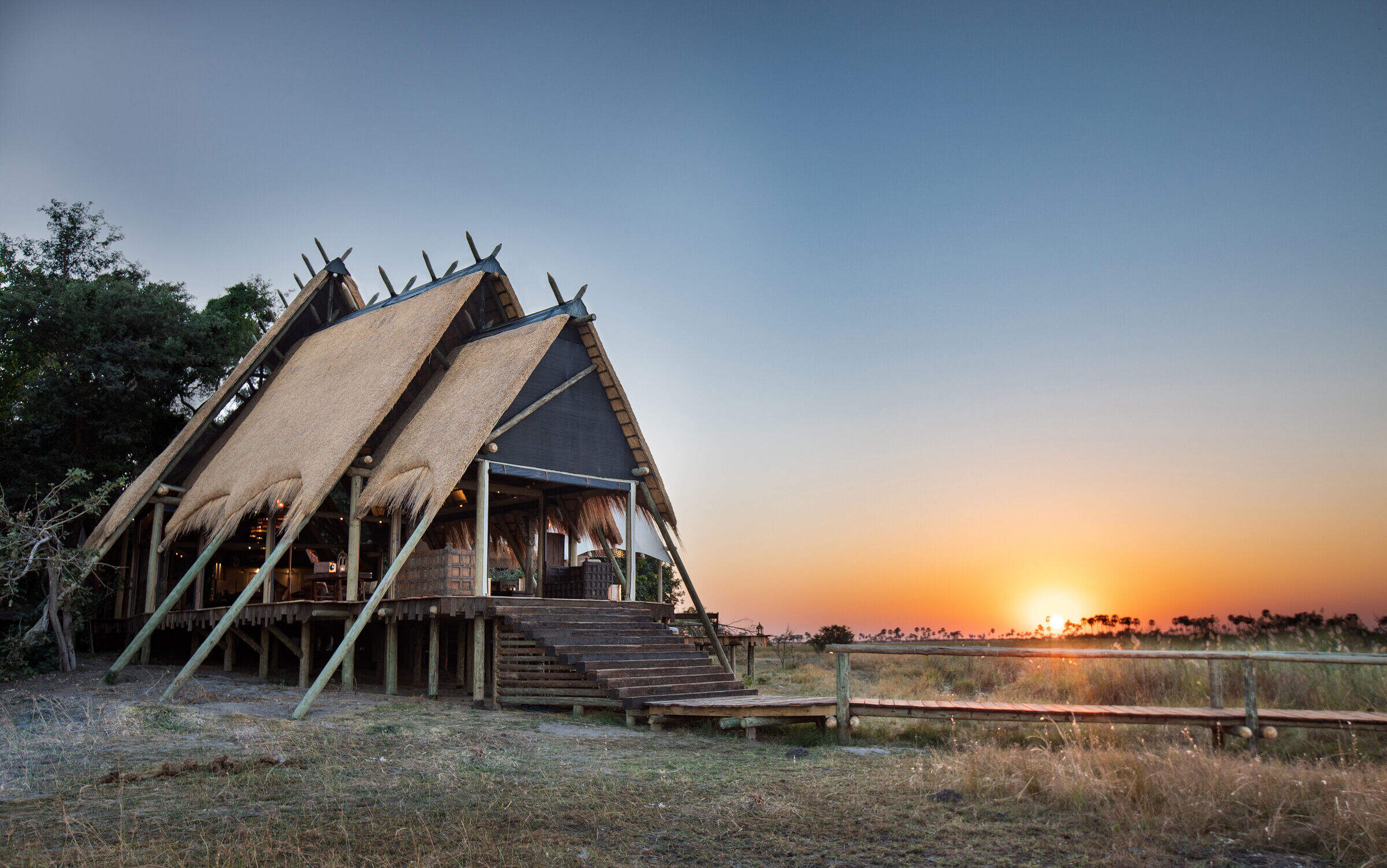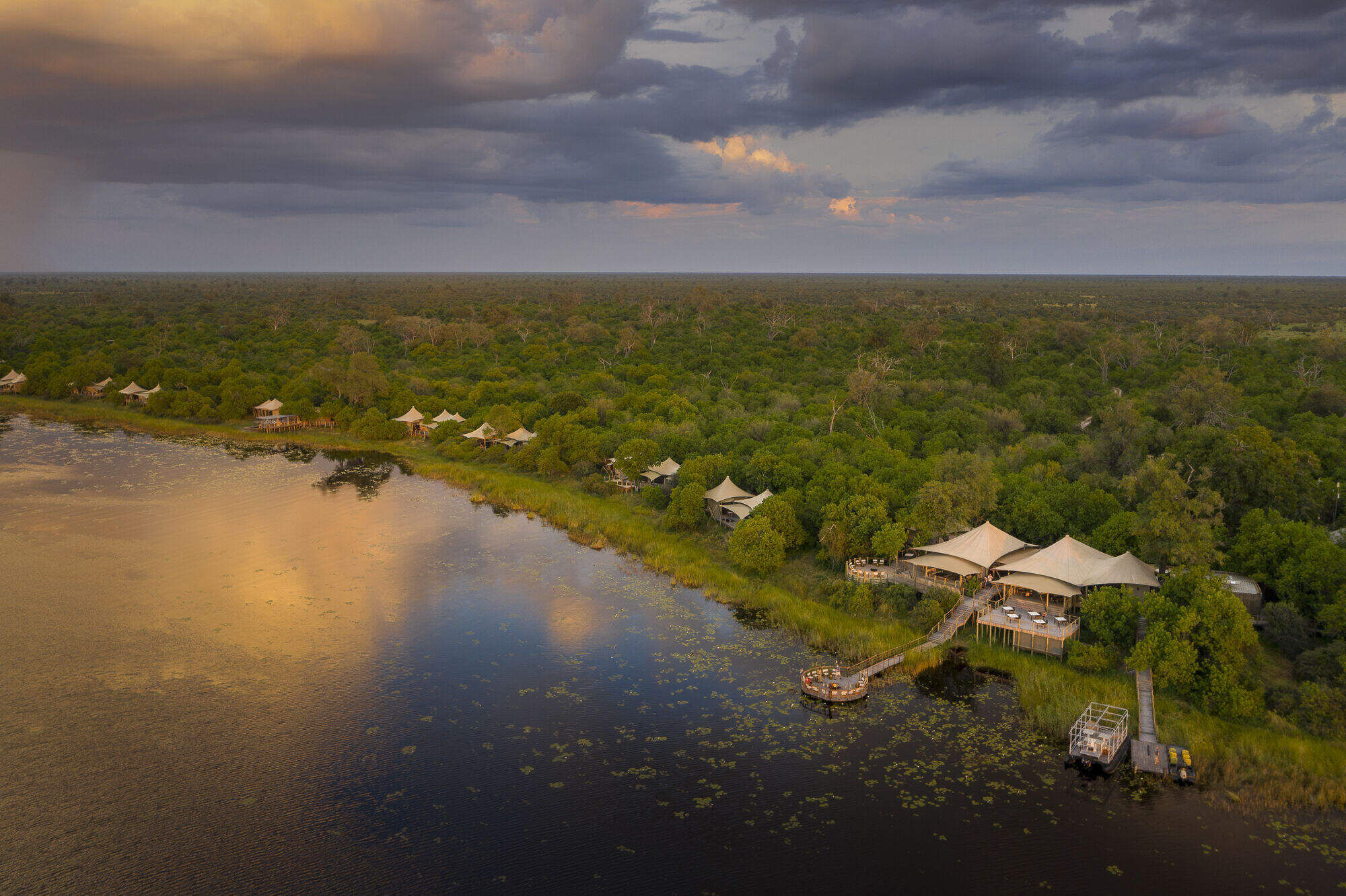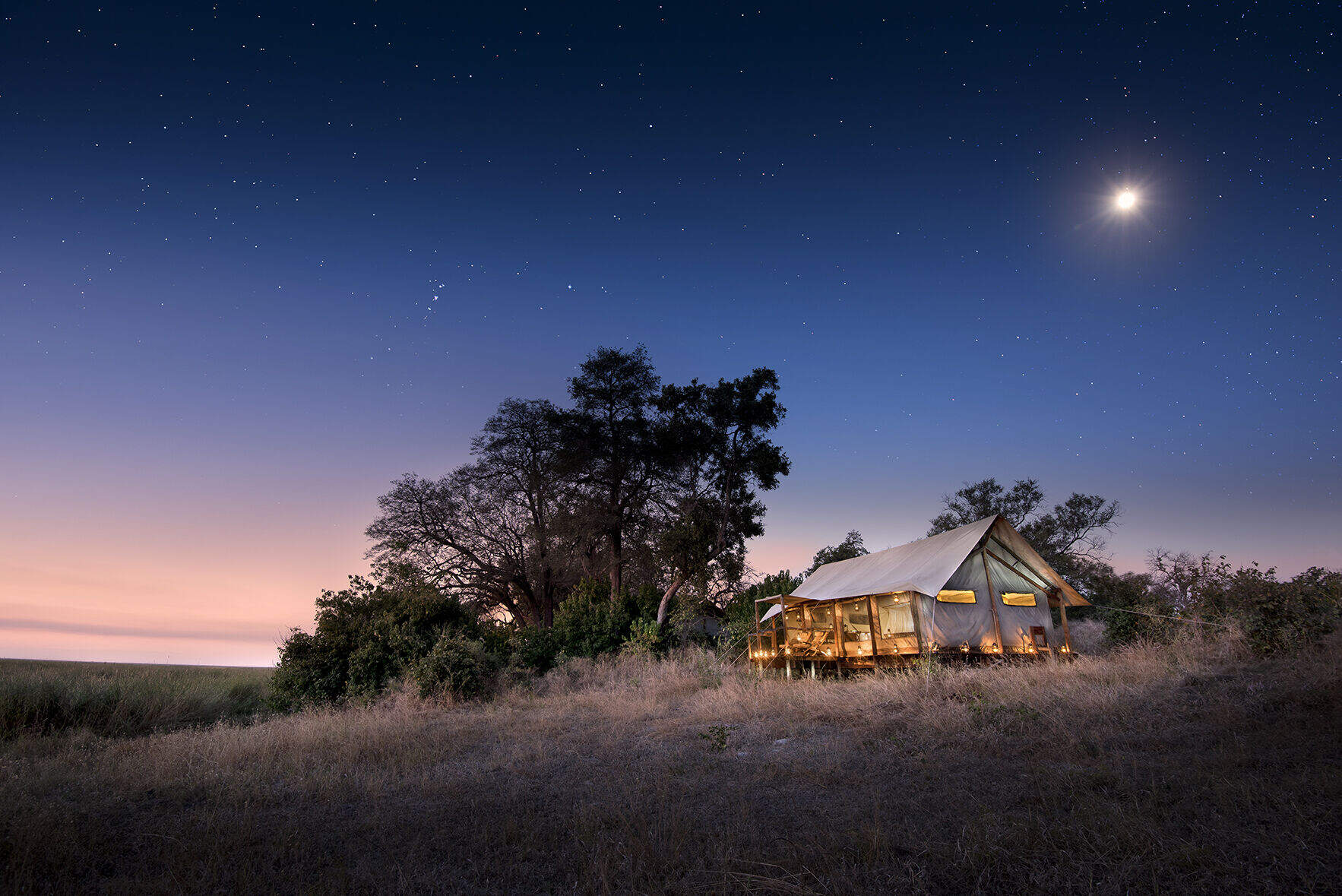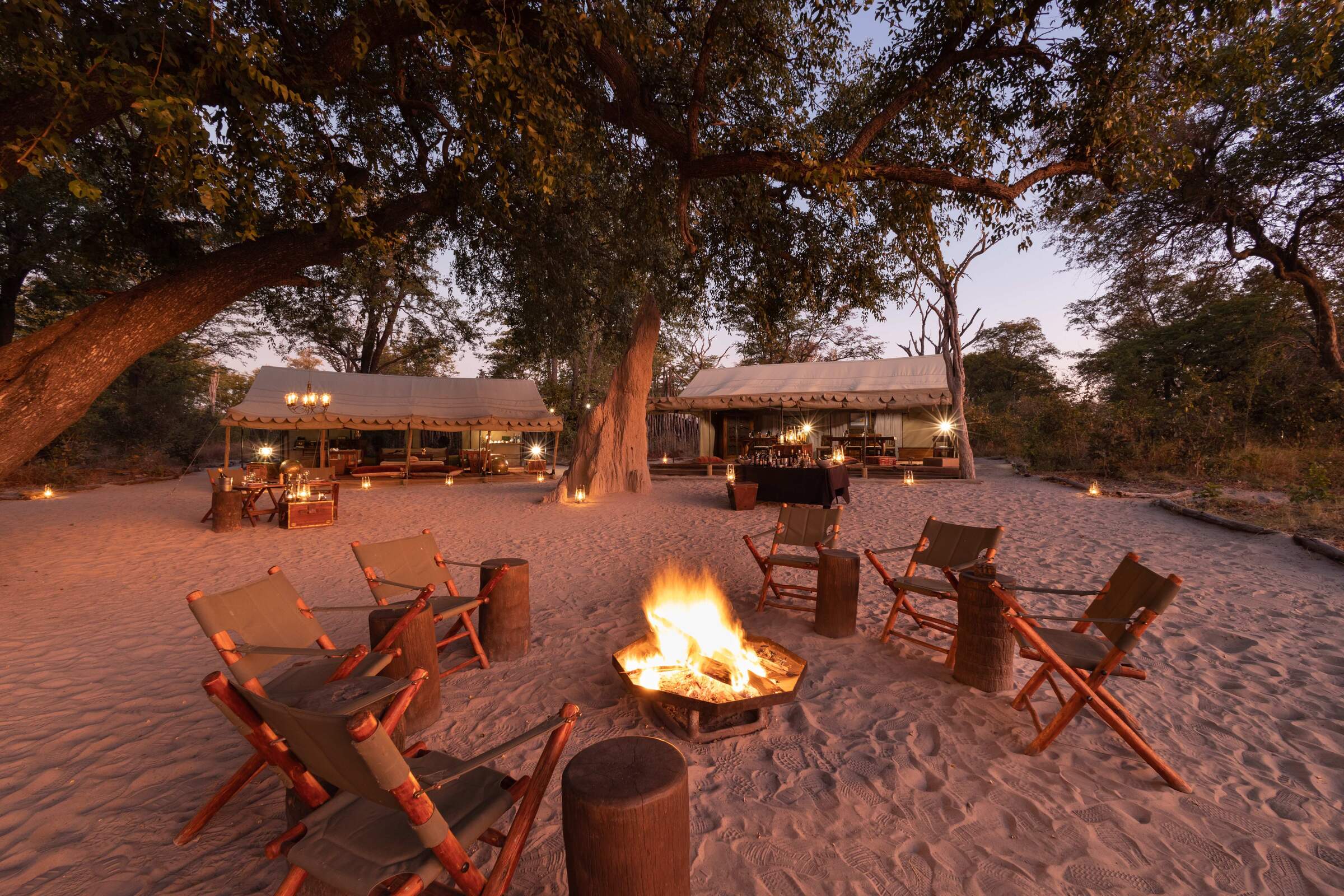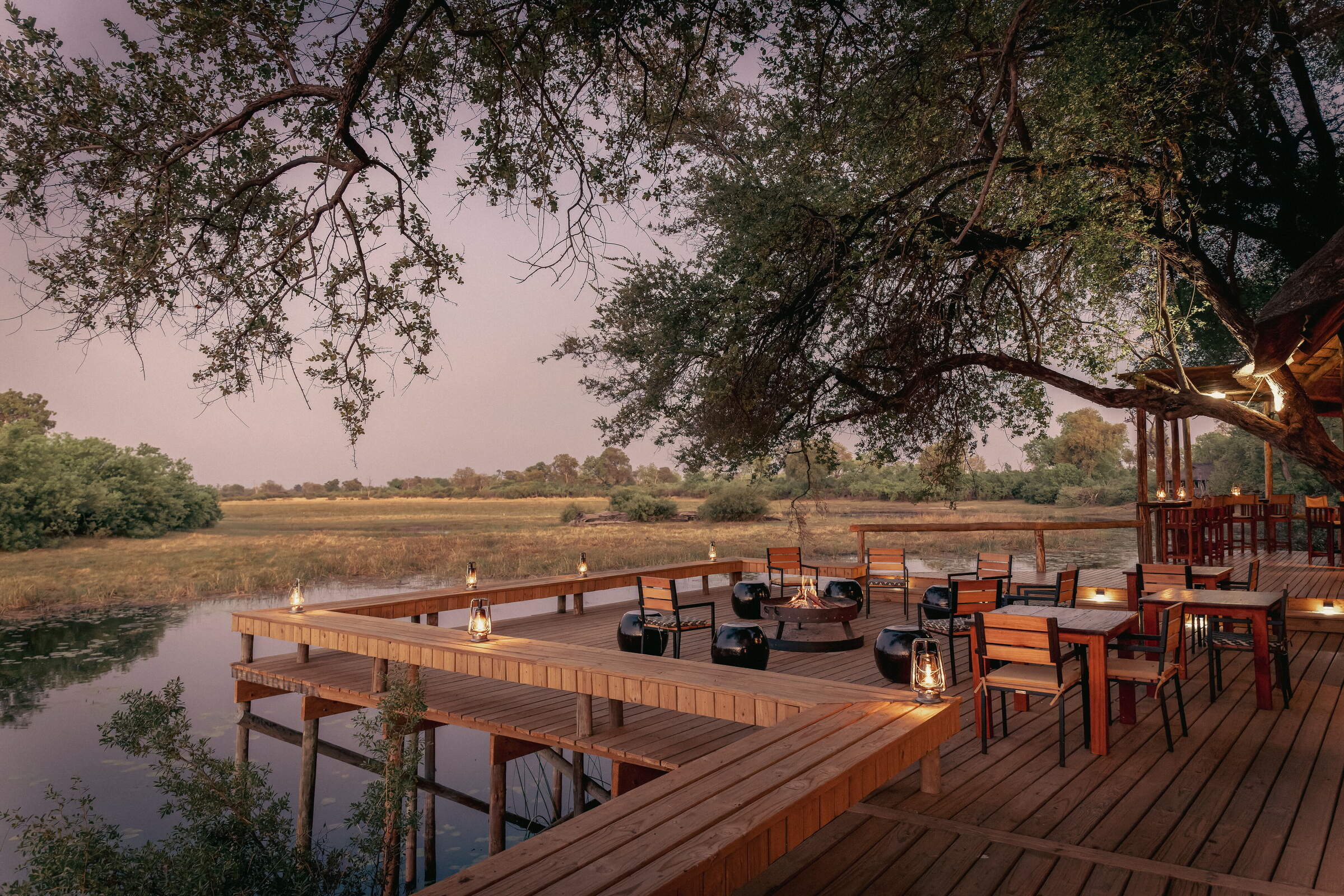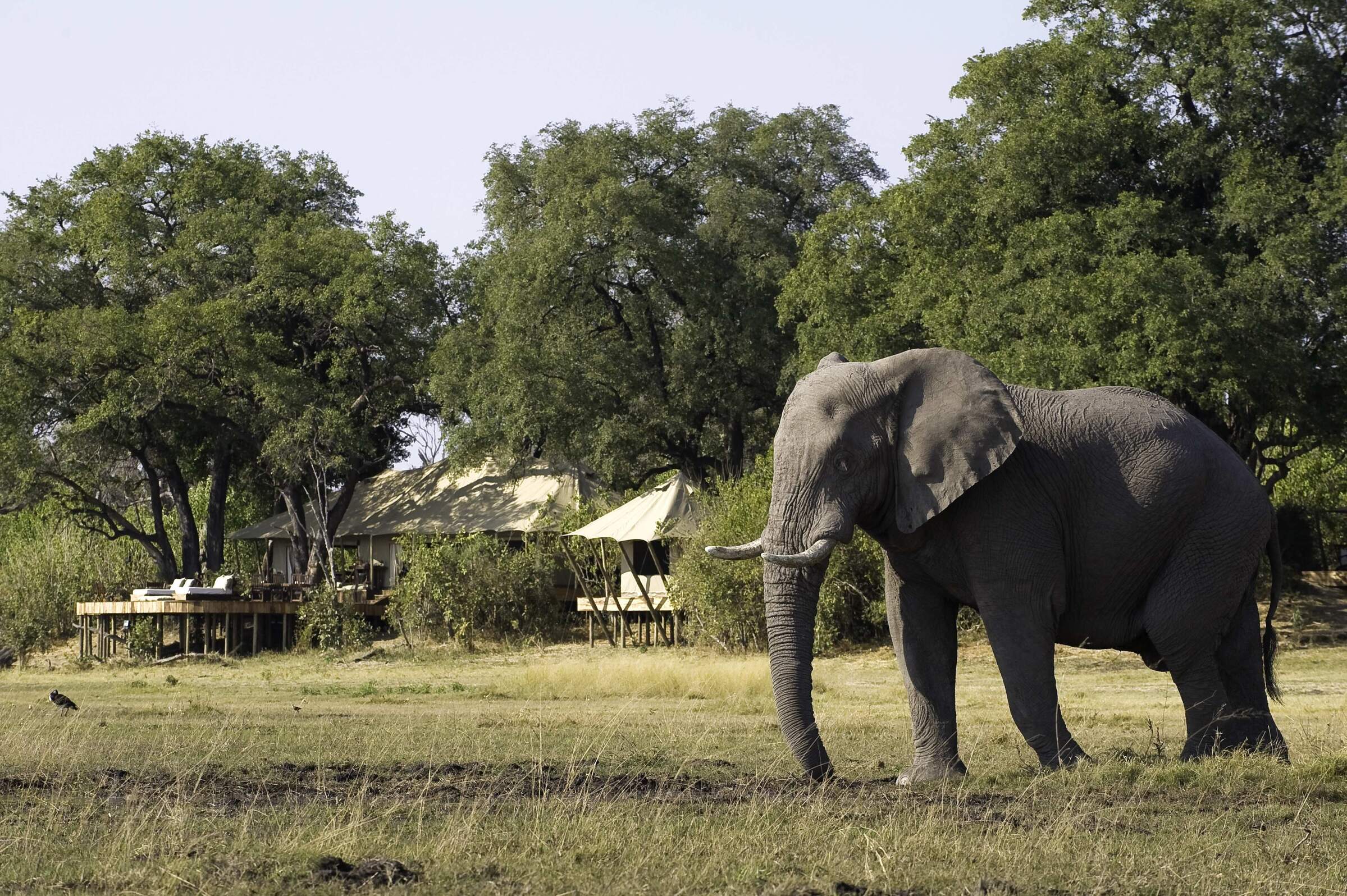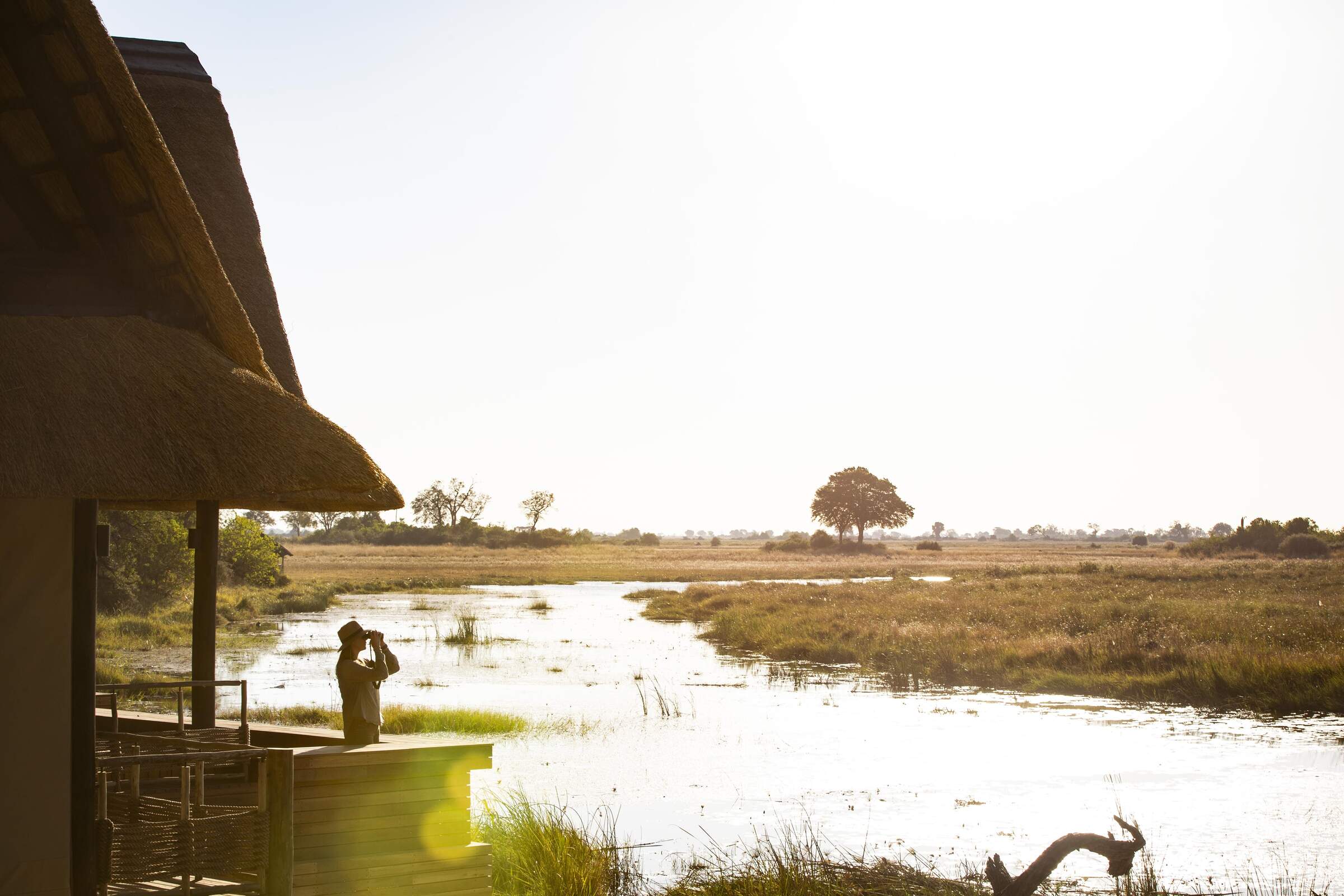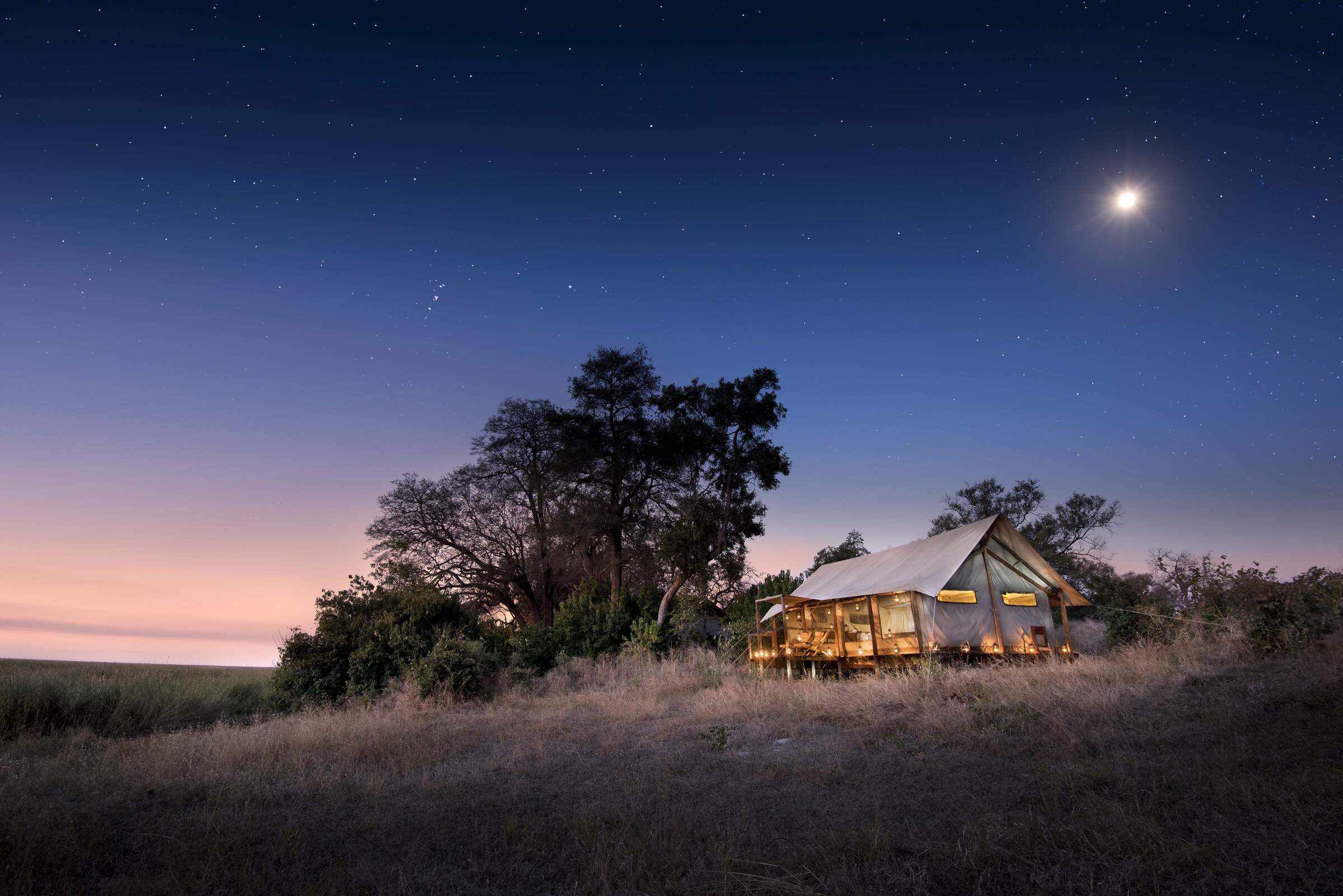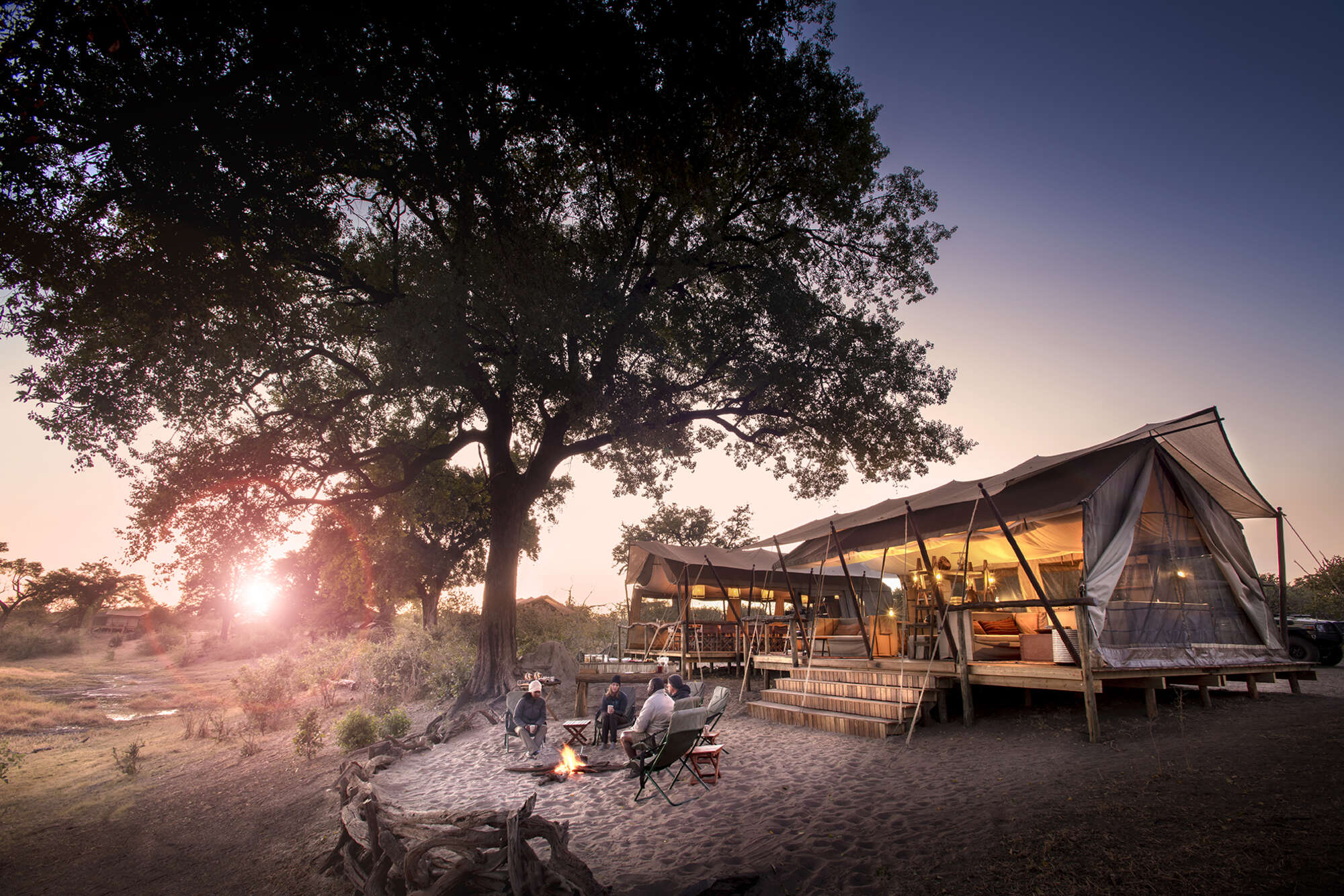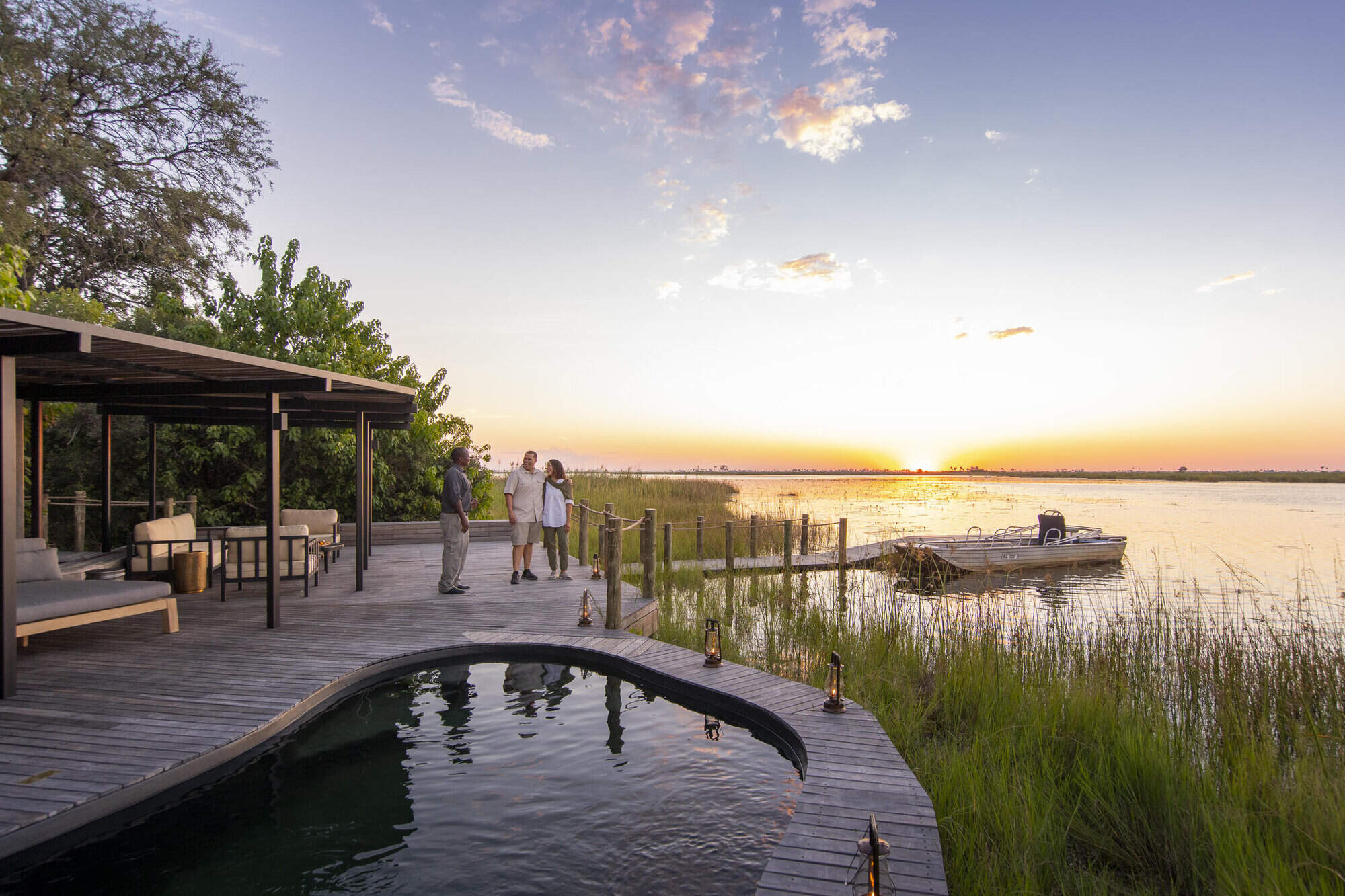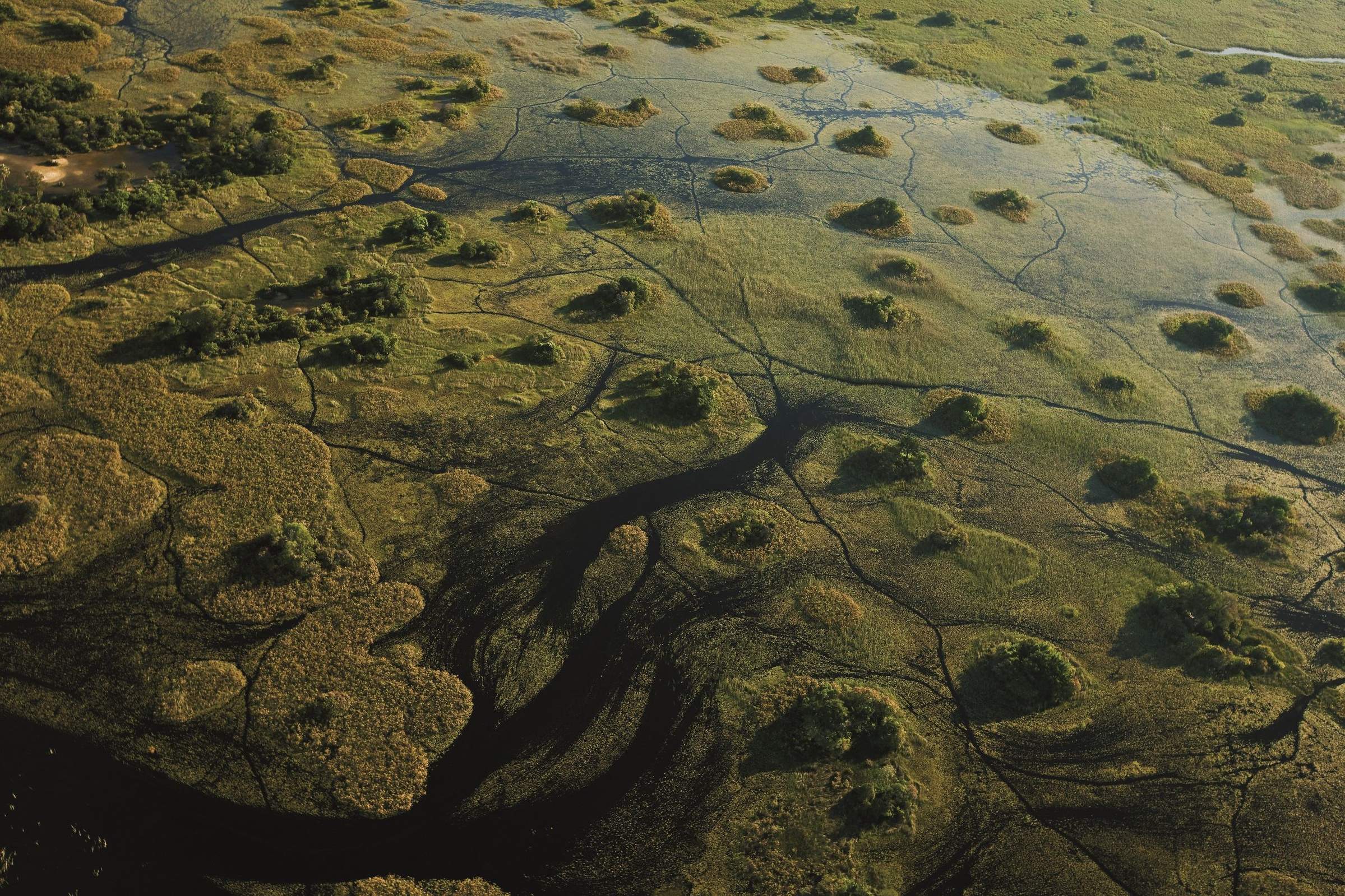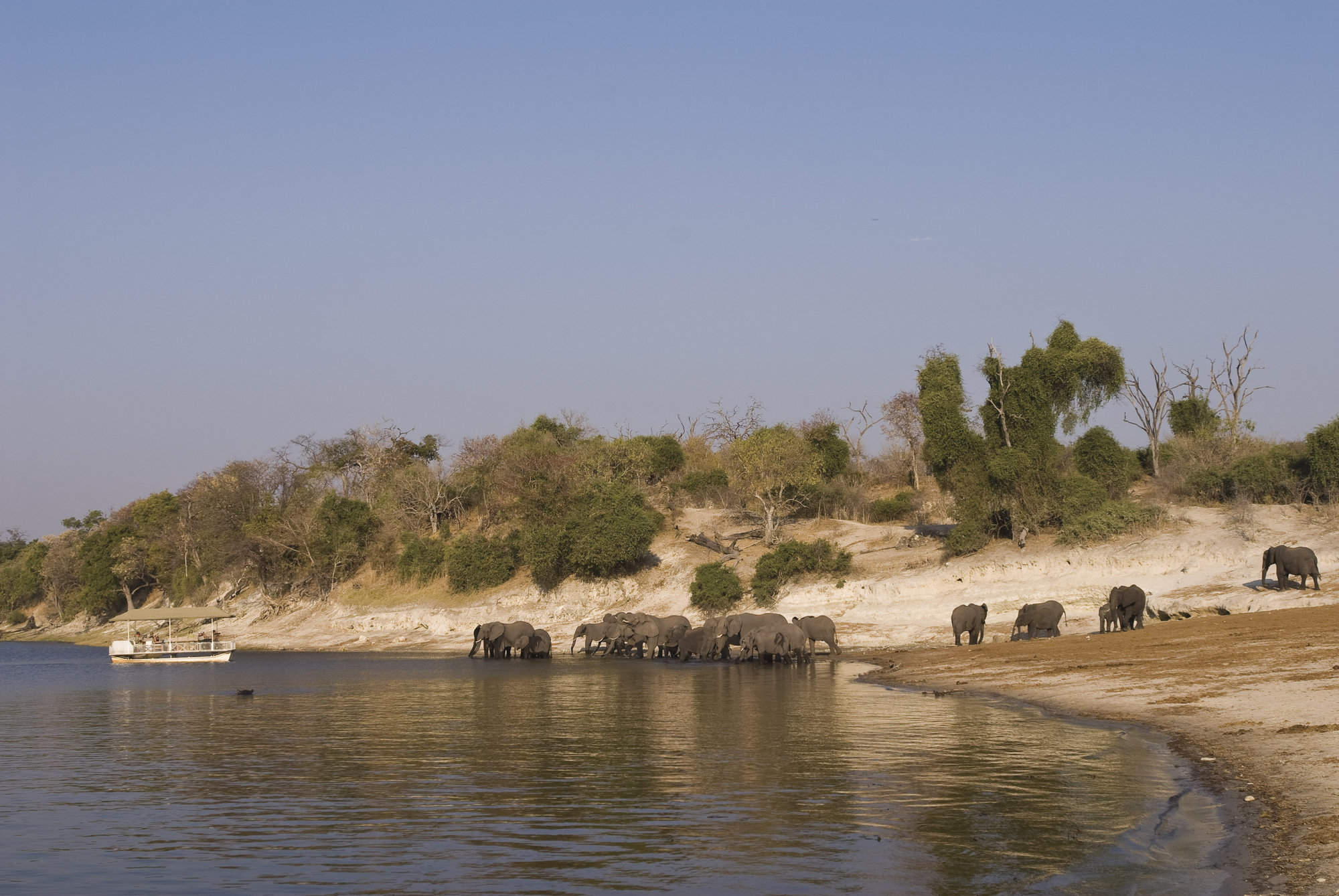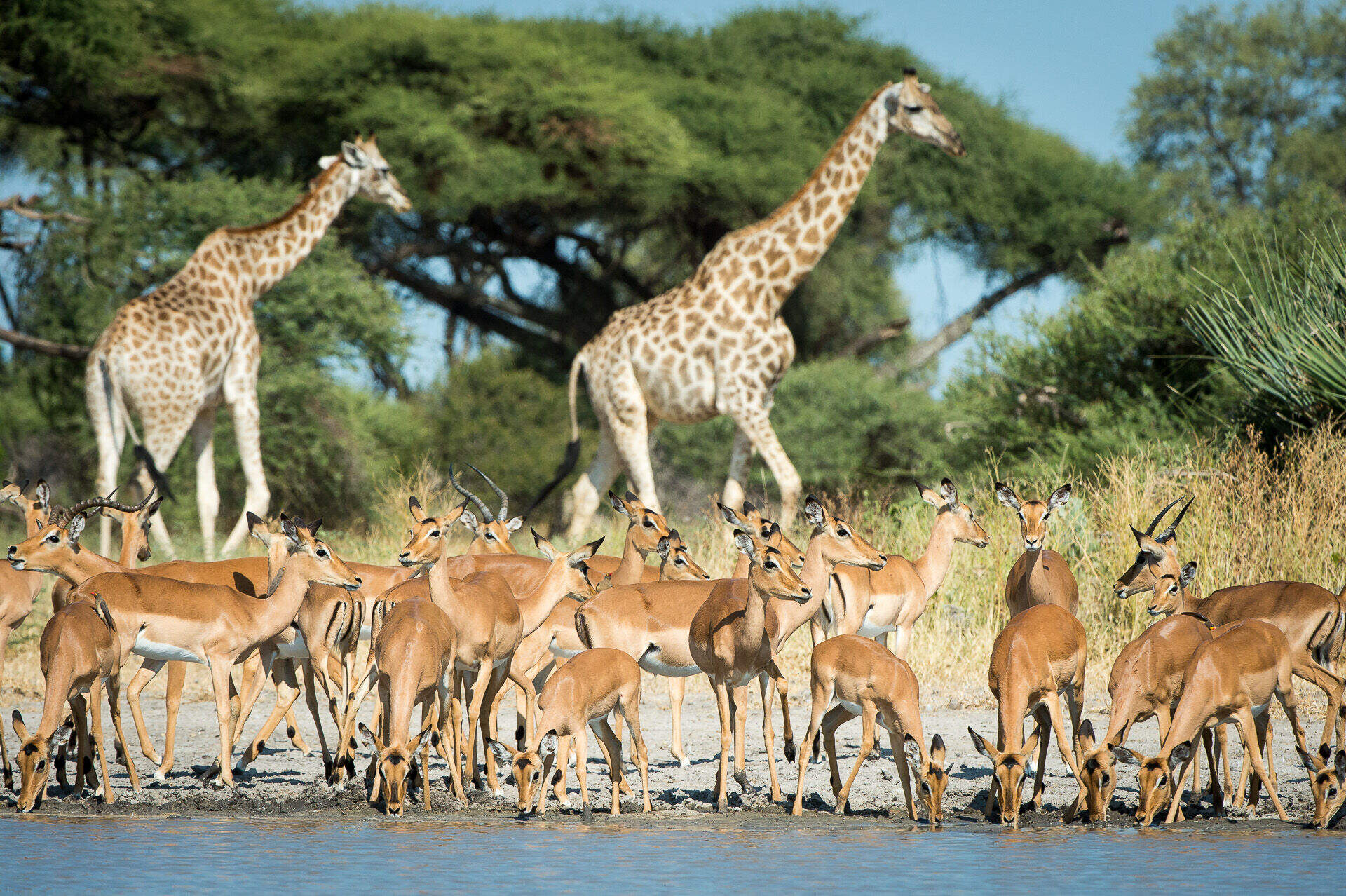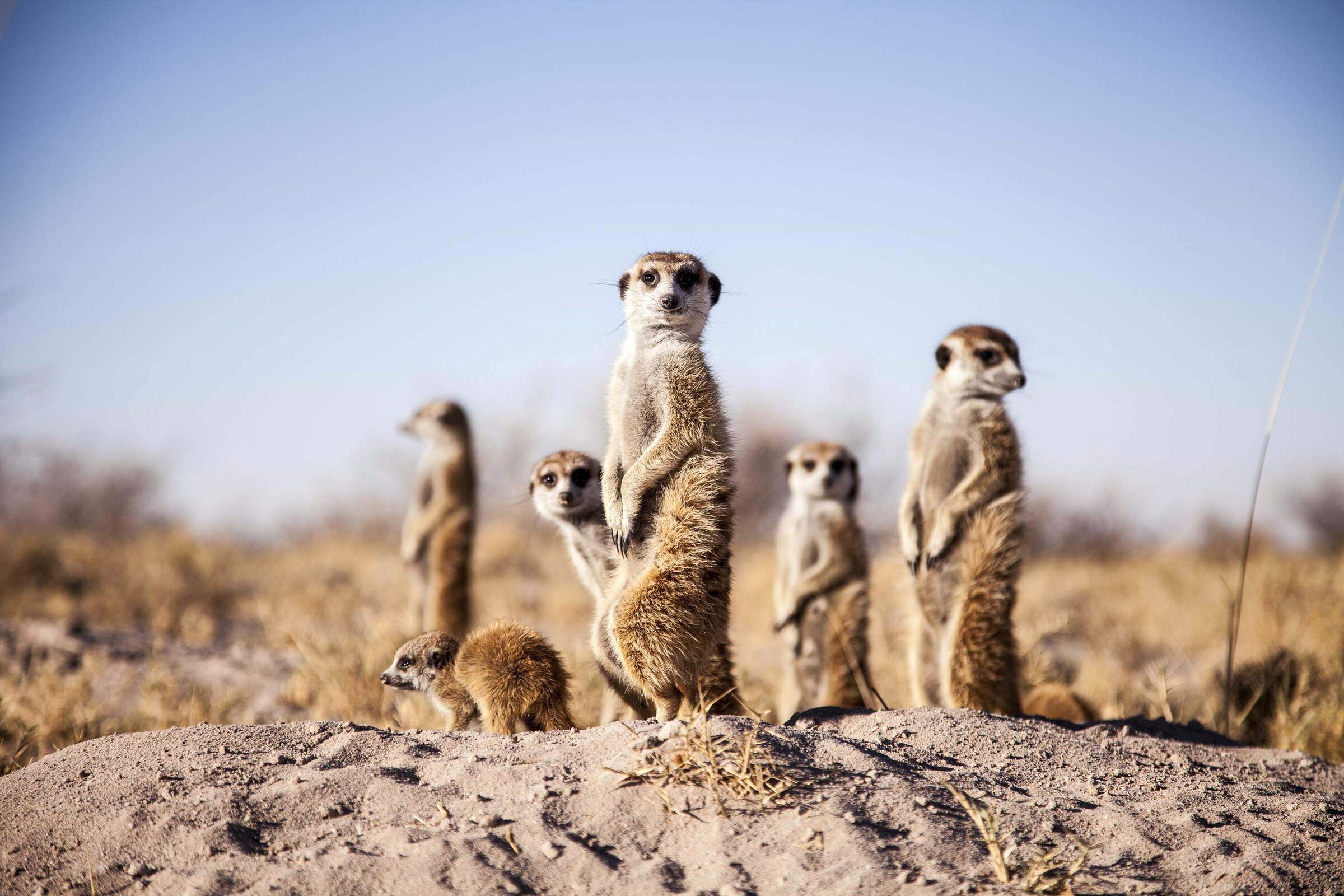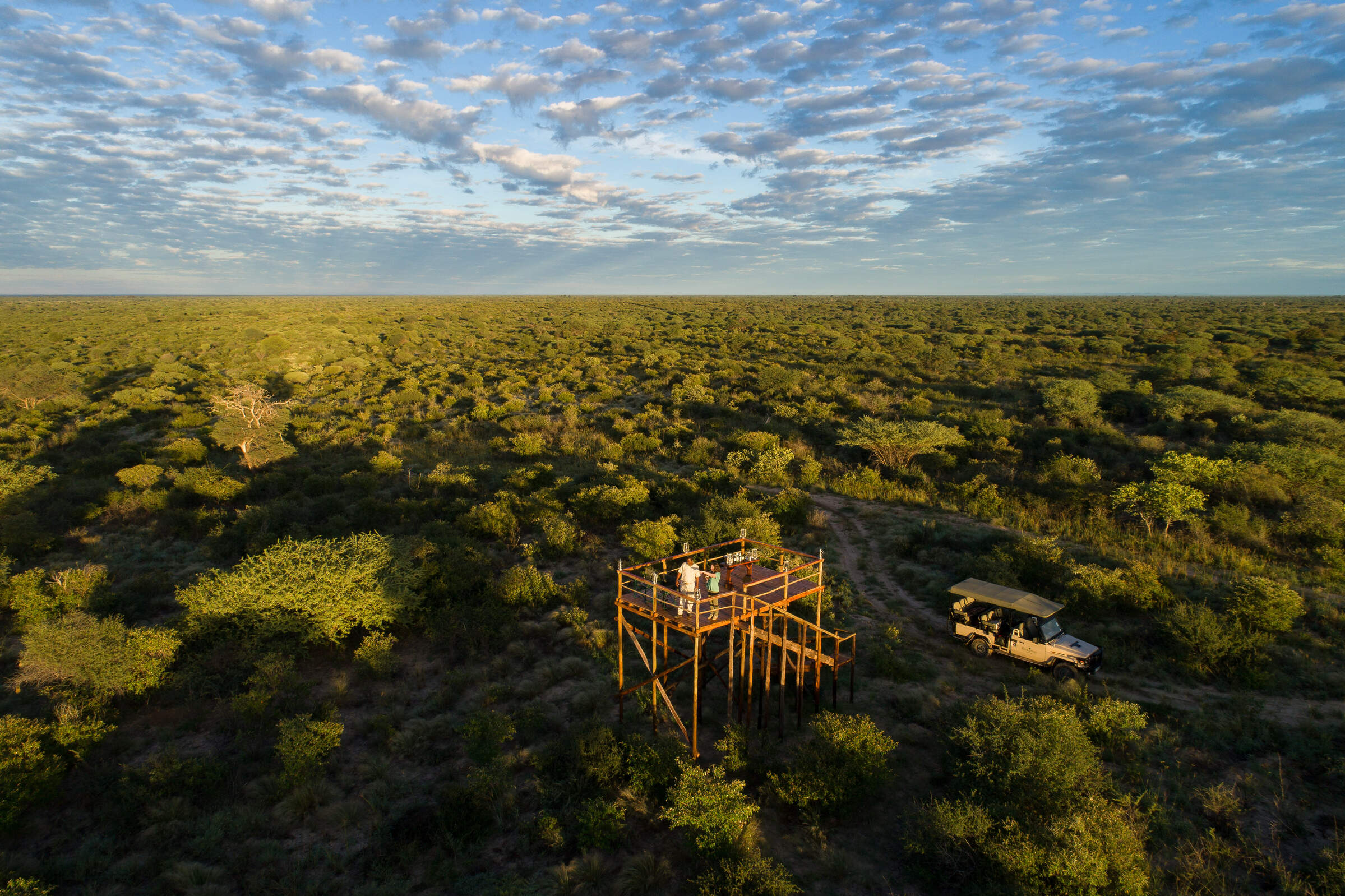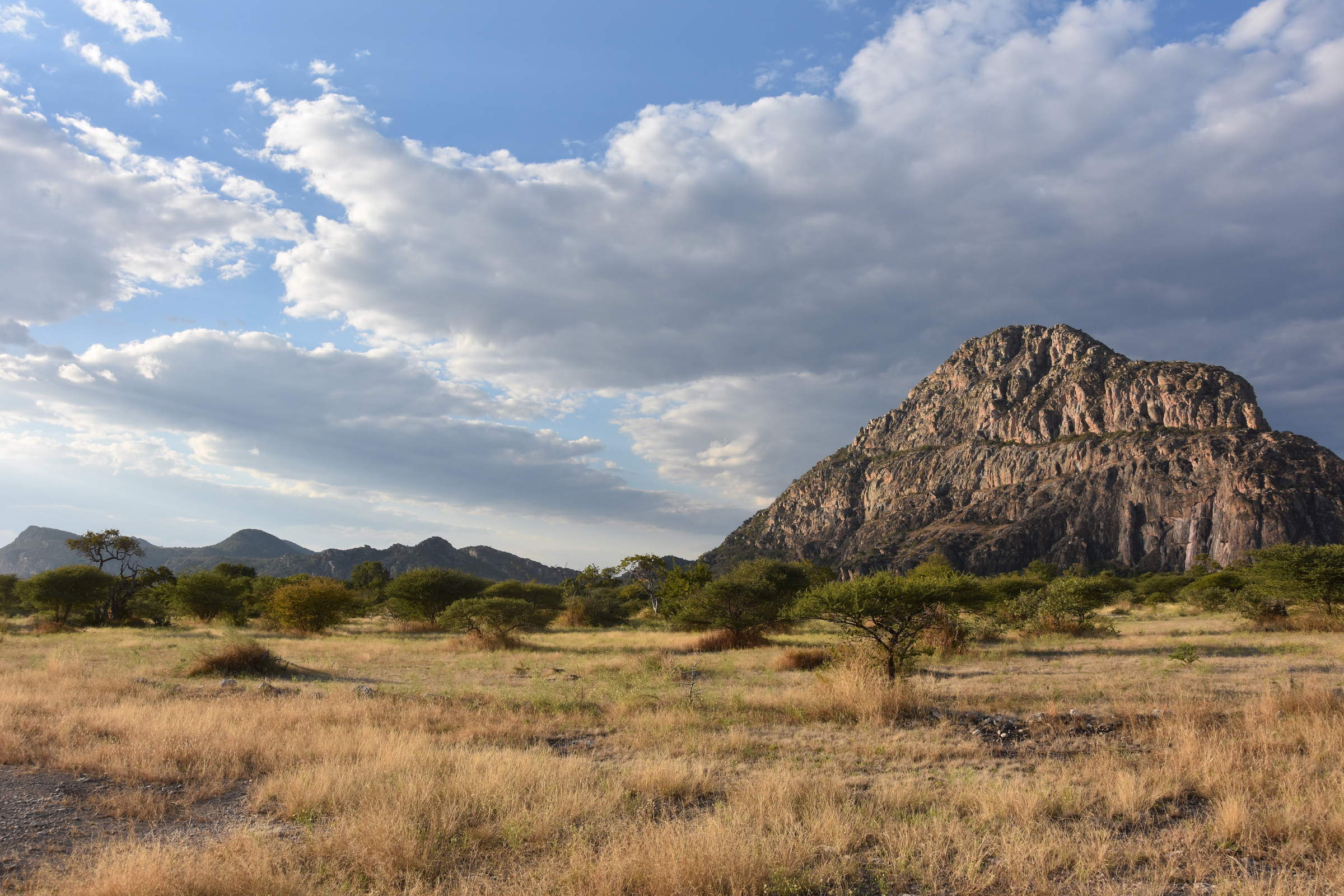Lagoon Camp: Our full report
In the north of Botswana's vast Kwando Reserve, Lagoon Camp has a spectacular setting on the banks of the Kwando River.
The wildlife around camp, where a band of lush riverine forest is interspersed with open plains, is particularly noted for the wild dogs that have habitually denned within the reserve since 1997, and the densities of elephants can also be exceptional.The Kwando Reserve – or Concession – is currently the largest private wildlife reserve in Botswana, covering 2,320km2 of unfenced wilderness in the far north of the country. Bordered by the Kwando River, which forms the boundary between the reserve and Mudumu National Park in Namibia's Caprivi Strip, or Zambezi Region, it attracts superb big game, especially during Botswana's dry winter months (May to October), when elephants and buffalo seem to be everywhere. Lagoon Camp shares the reserve with its sister camp, Lebala, to the south.
Lagoon Camp has eight spacious thatched chalets, including one designed for a family, all connected to the main area via sandy pathways. The chalets are elevated on wooden platforms with large mesh windows overlooking the river, where elephant often come down to drink. A small veranda with deck chairs at the front of each chalet allows you to soak up the view. On one of our visits, watching elephants frolicking in the river from our comfortable deck or the swimming pool was spectacular.
Lagoon's chalets are enclosed by stretched canvas walls and entered through sliding wood and mesh doors. Although perfectly comfortable, they are fairly “no frills”, with little in the way of extra features, and to us they felt a little sparse.
The spacious room is furnished with leather seats, a coffee table, and a writing desk with camp information, wildlife magazines, a charging station and a flask of drinking water. Up a step are twin beds or a double with bedside tables and reading lamps, and a ceiling fan above. There's no mosquito net, but mesh windows and doors keep the bugs out while allowing the breeze through, and canvas flaps can be closed against stormy weather.
A partition wall hides a luggage rack, open hanging space, shelving and an enormous mirror. A digital safe, umbrella, spare blankets, bug spray, insect repellent and mosquito coils are provided.
The en-suite bathroom is equally spacious, with two handbasins, plenty of mirrors, a deep free-standing bath, an indoor shower – and an outdoor shower accessed through a wooden door. A flushing toilet is in a separate cubicle. Toiletries are supplied, as is laundry soap for washing delicates.
Set on its own, and reached via the pool deck, the family chalet consists of an en-suite double bedroom, with a wooden door through to a second twin bedroom, which shares the same bathroom.
The thatched communal areas at Lagoon Camp, which are linked by wooden walkways, create a number of inviting spaces to relax, and include a curio shop. A circular structure acts as a central meeting point, with an exterior staircase that leads up to a cosy lounge and library with elevated views over the river – and a small selection of well-thumbed natural-history books.
To one side is an open-sided dining room and to the other an attractive bar, lounge and swimming pool deck, with poolside furniture and towels. The open outlook and use of both textured and polished wood, neutral tones and a scattering of richly coloured cushions gives a natural, bright and airy feel. Wild dogs feature as the stars of the photographic artwork on the walls.
Steps down towards the riverfront lead to camp chairs around a sandy clearing where a fire is lit in the mornings and evenings. Early-morning breakfast is served here and it makes an equally nice spot for swapping stories over a few drinks after dinner.
A wooden deck, with yet more seating and a swing bench, juts out over the river. Lagoon's double-decker boat is moored here, and between March and December, you can try your hand at fishing off the deck.
Run by an enthusiastic team, Lagoon Camp has a pleasant, laid-back atmosphere, with service that, overall, we've found to be genuinely warm and professional. (Despite a recent blip, on our last visit in November 2019 we felt that the service had improved.) You are encouraged to make yourself at home and help yourself to drinks from the bar fridge and tea/coffee station.
Activities at the camp focus on game drives in roomy 4WD vehicles, with no more than six guests per vehicle, so everyone gets a “window” seat. The roof may be detached on request, allowing unobstructed views for photography and game viewing, but it does leave passengers open to the elements. If you're hiring a private vehicle and prefer not to have a canopy – for better all-round views – it is essential to let us know at the time of booking.
As at its sister camps, an able tracker, as well as a driver/guide, accompanies all 4WD excursions at Lagoon Camp. This provides an extra pair of experienced eyes to search for predators and more elusive game and has resulted in some great wildlife sightings on our past visits. In fact, the guides here usually make a great effort to actively track the big predators – especially lion and wild dog. This provides a very good opportunity of seeing these predators, but often means bumping through the bush, off-road, at speed and with a mission, so those interested in more general sightings may end up disappointed.
While wildlife is generally much more prolific during Botswana's dry season (May–October), we've had rewarding sightings here year-round, and the rainy season often reveals more unusual sights as well as a greater variety of birdlife. On our most recent visit, we were incredibly fortunate to come across a mating pair of lions. Another highlight was an aardwolf den, where we had excellent views of three pups waiting for mum or dad to return with dinner.
As well as game drives, Lagoon may also offer short, guided walks in open areas near camp, though these are always at the discretion of the guides who will first assess the presence and movement of potentially dangerous animals. In practice, relatively little walking is done here, and we would not recommend Lagoon for those who are keen on walking safaris.
Fishing is possible for most of the year (except in the “closed season”, during January and February) and during daylight hours there are riverboat trips. Although these are normally available throughout the year, we think they are best at times of high water, usually May–September, but as this varies, do contact us for up-to-date information. In the past we have enjoyed cruising through the water watching a big herd of buffalo drinking at the river's edge, as well as elephant, hippo and a large variety of birds.
Our view
Lagoon Camp's attractive riverside setting and generally excellent game viewing have made it very popular amongst our travellers. Unforgettable predator sightings are often the highlight and the experienced guides will make it their mission to try to keep up with the pack. Some travellers will love this firm focus on predator sightings; others may find their pursuit, to the exclusion of other wildlife, frustrating and disappointing.
Geographics
- Location
- Kwando-Linyanti area, Botswana
- Ideal length of stay
- Three nights is ideal at Lagoon Camp.
Lagoon and Lebala combine particularly well with their sister camps: Splash in the Okavango, as well as Nxai Pan and Tau Pan in the drier reaches of the Kalahari to the south.
Note: If you combine Lagoon with Lebala, Tau Pan, Splash or Nxai Pan for a total of six nights or more, we will be able to include a long-stay discounted rate. - Directions
- Lagoon Camp is reached by light aircraft – approximately an hour from Maun or Kasane. The drive to camp from Kwando airstrip usually takes 20–30 minutes, depending on time spent game viewing on the way.
For those combining a stay at Lagoon and Lebala camps, which are both in the Kwando Reserve, a road transfer is possible between the two, usually incorporated into a morning game drive. - Accessible by
- Fly-and-Transfer
Food & drink
- Usual board basis
- Full Board & Activities
- Food quality
- On our most recent visit, in November 2019, we thought that the food was of a good standard, and the service – unlike a previous visit – was attentive.
Vegetarians and those with other dietary requirements can be catered for with advance notice.
An early light breakfast is laid out by the campfire before your morning activity. It usually includes freshly baked muffins, porridge or cereals and a bowl of fruit, as well as tea, coffee and juice.
Brunch is served buffet-style at around 11.00am. We were offered spicy sweetcorn salad, lentil and cabbage salad, a green salad, beef moussaka and fresh bread. A cheeseboard and a platter of fresh fruit were on hand to round off our meal.
High tea, served before the afternoon activity, generally consists of sweet and savoury snacks. We had pizza accompanied by jars of marinated feta and mushrooms and a very popular chilli jam. This, as well as a lemon drizzle cake, was washed down with iced tea and delicious homemade lemonade.
Dinner is a three-course meal, often a plated entrée and dessert, with main dish choices from the buffet. We enjoyed a leek and potato soup as a starter. The main course was either roast chicken with couscous or spinach crêpes, served with cauliflower cheese, sweetcorn, mangetouts and steamed carrots. Dessert was a self saucing chocolate pudding. A choice of red and white wine is served with the meal. - Dining style
- Group Meals
- Dining locations
- Indoor and Outdoor Dining
- Further dining info, including room service
- Private meals can be arranged on request, either on the pool deck or on your private veranda.
- Drinks included
- Bottled water, soft drinks, local beers and spirits plus a limited selection of (usually) South African red and white wines are included. Champagne and imported wines and spirits will cost extra and must be requested in advance.
Guests are usually given a bottle of filtered water, which they are encouraged to top up from the filtered supply in the camp's main area. Each chalet is also provided with glasses and a flask of filtered drinking water, which is replenished daily. We don't recommend that travellers drink from the tap.
Special interests
- Family holidays
- For those with older children who are enthusiastic about wildlife, Lagoon Camp is a good option for a family holiday in Botswana. As well as having a family chalet, the camp offers a privately guided “family safari”.
- See ideas for Family holidays in Botswana
- Birdwatching
- Drives from Lagoon Camp cover riverine, savannah and mopane-dominated areas – while boat trips bring great views over papyrus reedbeds. Colonies of carmine bee-eaters may enhance your birdwatching from mid-September to early December.
- See ideas for Birdwatching in Botswana
- Photography holidays
- A private vehicle and guide is relatively inexpensive at Lagoon Camp, allowing avid photographers in Botswana the ultimate flexibility in focus and pace of game drives.
- See ideas for Photography holidays in Botswana
- Wildlife safaris
- Lagoon Camp excels at sightings of the large predators, particularly wild dog, lion and cheetah, making it a good addition to a wildlife safari in Botswana. The best time for dogs is in June/July, the denning season, or within two or three months of that, when the pups are too young to move far.
- See ideas for Wildlife safaris in Botswana
Children
- Attitude towards children
- Children age six and over are welcome at Lagoon Camp, but families with children aged 6–11 are required to book a private vehicle at extra cost.
- Property’s age restrictions
- Minimum age six years.
- Special activities & services
- Colouring books with crayons are provided for children, and the staff enthusiastically participate in marshmallow-roasting around the campfire.
Early mealtimes and children's meals can be arranged on request.
For a surcharge, a specialist family guide can be booked in advance to accompany a family group at Lagoon Camp and its sister camps (Splash Camp, Kwara Camp, Lebala , Tau Pan and Nxai Pan); please ask us for more details. - Equipment
- Lagoon Camp has a dedicated two-bedroom family chalet.
- Generally recommended for children
- We would recommend Lagoon Camp only for older children with a genuine interest in wildlife.
- Notes
- Lagoon Camp is unfenced, abuts a deep-water channel, and often has very high densities of potentially dangerous wildlife in its area. Children must be under parental' supervision at all times. Parents should also note that the walkway to the family chalet is reached via the pool deck – and that the pool is not fenced.
Our travellers’ wildlife sightings from Lagoon Camp
Since mid-2018, many of our travellers who stayed at Lagoon Camp have kindly recorded their wildlife sightings and shared them with us. The results are below. Click an animal to see more, and here to see more on our methodology.

100% success

100% success

100% success

99% success

95% success

92% success

85% success

71% success

64% success

59% success

54% success

53% success

44% success

10% success

4% success

3% success
Communications
- Power supply notes
- The camp is run on solar with a generator used as a back up. Power is available in the chalets at all times. Inverters for CPAP machines are available.
- Communications
- There is WIFI in the guest rooms at Lagoon, some cellphones with roaming may pick up reception here, as Lagoon is very near the Namibian border and cellphone network.
- TV & radio
- None
- Water supply
- Borehole
- Water supply notes
- All the chalets have plumbed hot and cold running water for showers and flushing toilets.
Sustainability
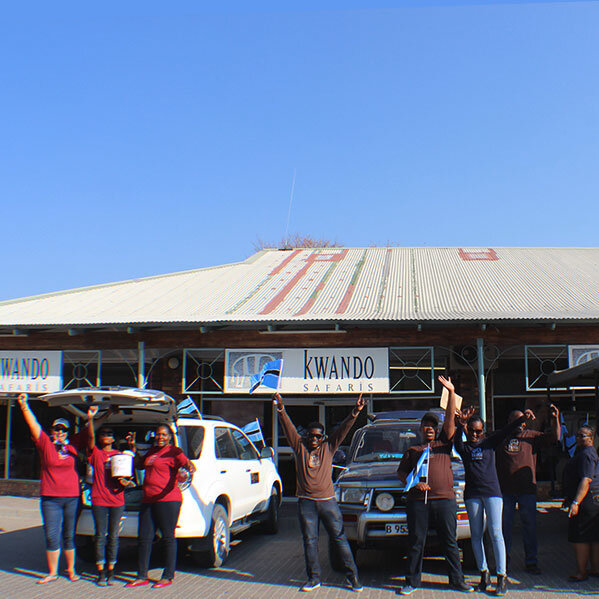
Bucket Project for local community support
Settled along Kwando River, in Northern Botswana’s largest private concession covering 232,000 ha of unfenced wilderness and hosting only one other camp, Lagoon guarantees an exclusive wilderness experience. Comprising of eight newly-renovated tents, the camp is heavily invested in the empowerment and development of local citizens.
Lagoon Camp is part of Kwando Safaris, a 100% citizen-owned company hiring exclusively citizens in all guest-facing positions within the group. Moreover, the camp’s commitment towards employee development can be seen in the advancement opportunities it offers. For examples, the camp manager advanced from a junior position, the guides started as trackers, and receptionists as waiters or tent ladies. The company pay scales are also at the top of the industry in Botswana, with both merit and long service awards being offered to the staff.
Kwando’s Bucket Project stands as proof for the camp’s effort to give back to the community in which it operates. For Botswana’s 50th Anniversary of Independence, Lagoon Camp aligned its efforts with the other members of Kwando Safaris and rather than spending money on a party, it solicited donations of household supplies for locals and also purchased some in addition, allowing for more funds to be utilized to benefit those who need help. The staff also came together for a weekend to give out buckets to the more rural outskirts of Maun, the tourism capital of Botswana and Kwando's head office location.
The initiative was received with great appreciation by the local community, which is why the camp intends to continue this practice at the beginning of each year as well as during the anniversary period.
See more great sustainability projects in Botswana
Health & safety
- Malarial protection recommended
- Yes
- Medical care
- Most managers and guides are trained in first aid and a comprehensive first-aid kit is kept in camp. Each guide usually also has a basic field medical kit when out on activities. In an emergency, Lagoon Camp would arrange for clients to be flown out to the hospital in Maun. Please note that it is only possible to fly out of camp during daylight hours as the bush airstrips do not have any lighting at night.
- Dangerous animals
- High Risk
- Security measures
- Because Lagoon Camp is unfenced and the Kwando Reserve is home to a large population of potentially dangerous wildlife, guests are escorted to their chalets after dark. An air-horn is provided in each chalet to attract attention in case of emergency.
- Fire safety
- Fire extinguishers are kept in the common areas of the camp and on the veranda outside each chalet.
Activities
4WD Safari
Birdwatching
Boat trip
Fishing
Guided walking safari
Helicopter
Night drive
Private activities
Extras
- Disabled access
- On Request
- Laundry facilities
- A full laundry service is included, excluding delicates. Washing powder is provided in the chalets for this purpose.
- Money
- No currency-exchange facilities are offered. There are digital safes in each chalet.
- Accepted payment on location
- Mastercard and Visa credit cards are accepted; Diners and American Express are not. For curio shop purchases a 3% credit-card commission is charged. Cash payments may be made in South African rand, British pounds, US dollars, euros and Botswana pula.
Other lodges in Kwando-Linyanti area
Alternative places to stay in this same area.










